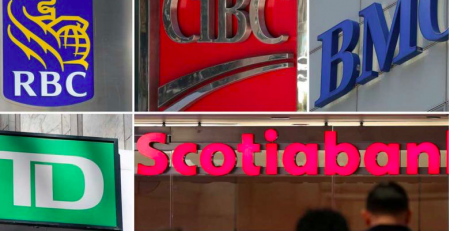Mortgage insurers cool to extending six-month pandemic payment deferrals
[Financial Post – August 14, 2020]
Concerns about what happens if the debt holiday ends before the economy bounces back
More than 760,000 borrowers have deferred or skipped a mortgage payment during the pandemic, which is equal to around 16 per cent of mortgages in bank portfolios, according to the Canadian Bankers Association.
Homeowners counting on mortgage payments being deferred beyond the six-month break they have received during the pandemic might want to reconsider, as home-loan insurers that have permitted postponements appear cool towards extending the holiday.
Case in point: Canada Mortgage and Housing Corp. The federal housing agency allowed lenders to offer six-month payment deferrals on the loans it insures against borrowers defaulting, but the Crown corporation also told the Canadian Credit Union Association (CCUA) last month that a half-year break was likely enough.
“At this time, there are no plans to extend the deferral period,” CMHC is quoted as saying in response to a credit-union question.
Hundreds of thousands of borrowers have availed themselves of payment deferrals during the COVID-19 pandemic, raising concerns about what happens if those debt holidays end before the economy has bounced back. A debt hangover could also curb Canada’s overall economic recovery, as money that could be spent elsewhere is channelled once more towards loan repayments.
Lenders have been seeing deferral numbers drop, though, amid the recent economic reopening. Genworth Canada, the country’s largest private-sector residential mortgage insurer, earlier this month said it expects the “vast majority” of deferrals will end with borrowers returning to their regularly scheduled payments.
“However, the Company expects that a subset of insured mortgages with payment deferrals will likely end up in default after the deferral period ends,” Genworth said in its latest financial disclosures. “As a result, the Company and its lenders have plans in place to increase loss mitigation activities to address the increase in reported delinquencies that is expected starting in the fourth quarter of this year.”
CMHC and the other mortgage-default insurers may not currently be planning on a blanket extension of the six-month deferral period, but borrowers could still postpone payments for up to four months with a pre-existing default-management tool for lenders.
Genworth Canada also said it believed the deferrals “are an effective loss mitigation strategy in the COVID-19 environment.”
Canada Guaranty in a March update to lenders said its six-month deferral program “does not remove the existing ability to defer up to four months throughout the life of the mortgage.”
It also said, “In the event a homeowner requires additional assistance or requires additional payments for future hardships, Canada Guaranty will review each request on an individual basis.”
Genworth Canada and Canada Guaranty did not respond to questions from the Post.
There are several other default-management tools, such as a special payment arrangement, meaning a deferral may not be an insurer’s first choice.
The default-management playbook gives an example of a borrower whose employer has permanently shut down, wiping out their income, but who may have other employment opportunities. In this case, the playbook said that a payment deferral of up to four months is “conditionally recommended,” although lenders “are to apply extra due diligence when assessing the feasibility of this tool on a case-by-case basis.”










